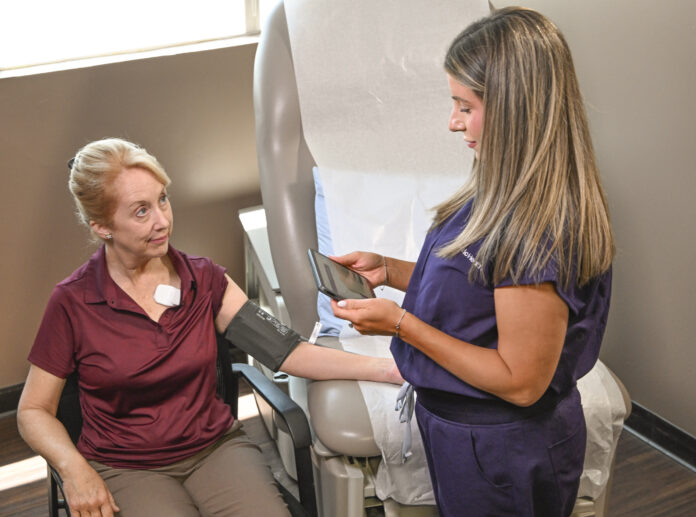Pasadena, Calif. — A new study published in JACC: Advances demonstrates that the FDA-cleared Vivio System from Ventric Health can accurately detect heart failure in high-risk patients within a primary care setting, using a five-minute, non-invasive test. The findings mark a potential breakthrough in how and when patients are diagnosed with heart failure, which is typically identified only after serious symptoms appear and hospitalization is required.
The study evaluated the Vivio System’s ability to measure left ventricular end-diastolic pressure (LVEDP)—considered the gold standard for assessing heart failure—alongside the Kansas City Cardiomyopathy Questionnaire (KCCQ-12) to assess patient symptom burden. Historically, LVEDP has only been measurable through invasive cardiac catheterization in hospital settings, limiting its utility for routine screening.
“In an average of five minutes and in one visit, PCPs can now accurately diagnose and assess the burden of heart failure in high-risk patients,” said Thomas Cheek, Chief Medical Officer at Ventric Health.
The study involved screening 2,040 patients over the age of 65 with diabetes or chronic kidney disease—two major risk factors for heart failure. Of those, 38.5% showed elevated LVEDP using the Vivio System. Nearly 25% of patients with elevated LVEDP also reported significant symptoms and impaired health status consistent with NYHA functional class II-IV, indicating moderate to severe heart failure.
These patients are typically candidates for early intervention, which may include medication or cardiology referrals. Importantly, the system enabled this identification in the primary care setting, potentially reducing the need for emergency care and lowering long-term healthcare costs.
The study also noted a higher proportion of newly diagnosed heart failure cases in women, aligning with previous research that suggests women often experience delayed diagnoses compared to men.
“Through earlier disease identification, we are helping the healthcare system better control the high and growing costs of heart failure,” Cheek added. “We are proud of the role our technology is playing to improve outcomes and support clinicians across the country.”
The Vivio System is currently being used in primary care clinics nationwide, offering physicians a fast and effective tool to screen for heart failure in at-risk populations.



